Chin Hoi Meen
A Standout Success
Published By Paradise Magazine Vol.1 2007
Words By Noel Pascoe
Chin Hoi Meen… a man who lived through racism, the depression and wartime terror to become a respected pillar of Papua New Guinea society.
Decades after his death in an Australian Hospital, the diminutive son of a Chinese immigrant is still known to many in PNG as a kind and popular man.
His name lives on for the current and future generations through the firm he founded, the standout success in electrical retail trade and the music industry.
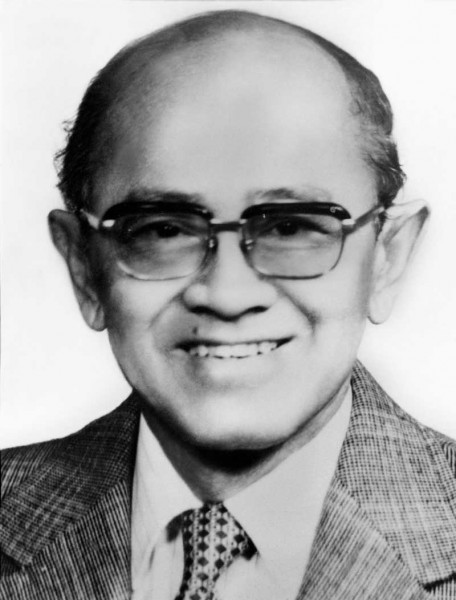
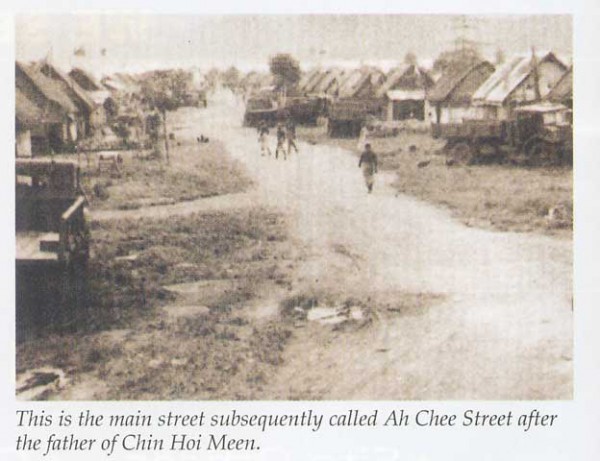
The heritage left by Chin Hoi Meen is carried on by his family through the company now known as CHM, in shops in Port Moresby, Lae and Kokopo
Not bad for a man who had to go out to work at the age of 16, after his father died.
He was born in Rabaul on January 28, 1917, with World War I still raging in Europe. The Gazelle Peninsula saw action from that war with a brief but bloody battle for the Bitapaka radio station, taken by Australian soldiers from the besieged German troops and PNG police.
His father, Chin Ah Chee, migrated to Rabaul from Hannan, China, five years earlier. It was customary for the Hannan people to enter into restaurant or hotel trade.
Ah Chee established the legendary Ah Chee Hotel in Casuarian Avenue in German occupied Rabaul.
The hotel housed all manner of visitors, including the Australian who later became the world famous heartthrob actor, Errol Flynn.
Many of Ah Chee’s achievements are still celebrated by the people of Rabaul, one of the main streets in Rabaul is named after him, Ah Chee Avenue.
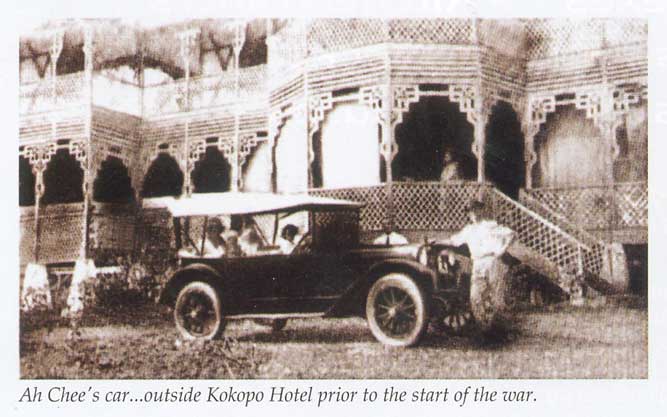
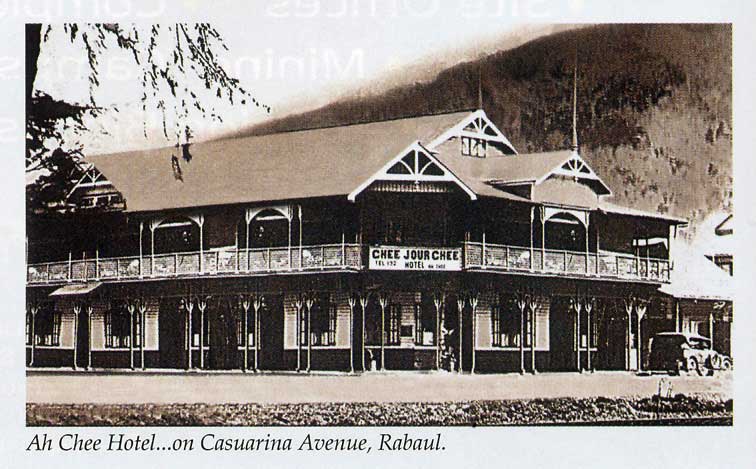
Rabaul was invaded by the Australians in 1914 and many of the resident Germans were put into internment camps.
Ah Chee visited the Germans regularly and helped them with food and medicine and to deliver letters back to their families and loved ones in Germany.
This was a trait of friendliness to be repeated during World War II by his son.
Ah Chee was later decorated by the German and Japanese governments for his selflessness, generosity and willingness to help people in need, especially the German civilians, who were interned in Rabaul.
Chin Hoi Meen’s father died in 1933 when he was at the tender age of 16. The lad did various lowly-paid jobs until he joined the Department of Agriculture as a weather observer and clerk. Three years later, he married June Lan Wan in Rabaul, in 1936, at the age of 19.
During the mid 1930’s to the early 1940’s, many Chinese in PNG wanted to join the Australian Army but could not do so as they had no citizenship rights.
In 1941, a group of courageous Chinese men decided to form their own unit called the Auxiliary Ambulance Detachment to help play a part in the defense of Rabaul. Chin Hoi Meen joined the ambulance detachment of the New Guinea Volunteer Rifles in 1941 and was one of their leading organisers.
The Japanese Army invaded Rabaul on January 23, 1942. The invasion caused widespread panic in the community. So sudden was the military takeover that the members of the ambulance detachment didn’t have a chance to group together. Some were still able to help wounded Australian soldiers at Vunakanau, south of Rabaul.
This marked the start of World War II in New Guinea and the battle between the Australians and Japanese had begun.
This marked the start of World War II in New Guinea and the battle between the Australians and Japanese had begun.
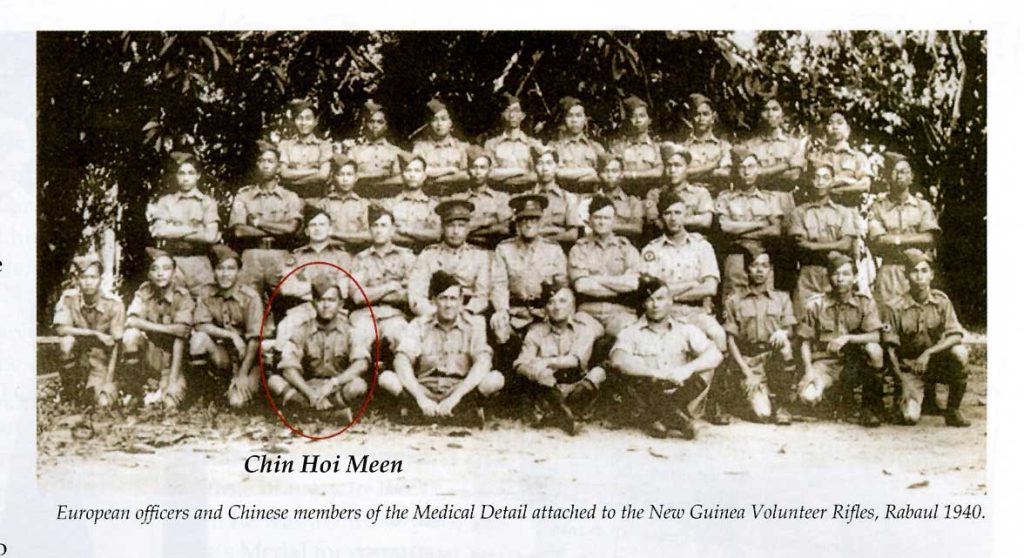
Chin Hoi Meen recalled having to send his wife, then pregnant with their second child, and his three-year-old son Larry, to Adler Bay to seek refuge with his mother and other families fleeing the Japanese invasion. There were few illusions among the Chinese about the attitudes of the Japanese, following reports of terrible slaughters and brutality with the 1930’s invasion of China by troops from Japan.
Chin Hoi Meen chose to remain in Rabaul. The Japanese took him prisoner along with many other Chinese to perform manual labour such as loading ships and digging waterholes.
He recalled how the Japanese beheaded 10 Chinese men and later captured several more leaders of the Rabaul Chinese community who were subsequently shot in cold blood near the Wunawutung Hotel on the north coast of Rabaul. Shirley, his third child, was also born during the tumultuous war period.
Chin Hoi Meen applied for permission from the Japanese to go to Sum Sum plantation at Adler Bay, 70 miles from Rabaul, to join his wife and family.
A permit was issued to him and two friends, enabling them to pass through several checkpoints from Rabaul to the Warangoi River, which was a long way from their destination.
One of his friends drowned while crossing a river. Beyond the river was “no man’s land” but the young man persevered and walked four days to reach the plantation. There was a contingent of Japanese soldiers camped near the plantation. The young Chinese family lived with the daily fear of knowing that they could be killed any time as they lived in the midst of their enemies as refugees.
American war planes would fly overhead nearly every day, and the refugees always ran for cover in case of an attack. One day, Chin Hoi Meen and his family were caught by surprise and fired upon by the American aircraft, whose crew thought they were Japanese. During this attack, two Chinese men and a woman were killed and a baby girl wounded. One day in 1943, two New Guinea soldiers crept past the Japanese guards and entered Chin Hoi Meen’s house. They showed him a note from the Australian spies known as the Coastwatchers. Their main task was to monitor the Japanese movements and send radio messages to Australian headquarters located in Port Moresby.
The Coastwatchers were desperate to know what was happening inside Rabaul and asked him to spy on the Japanese and send vital information back to the Australians. Chin Hoi Meen did not hesitate.
He began to form an extensive network in Rabaul. He made several detailed maps and sketches of Japanese positions. He also detailed all they could find, from weapons to ammunition dumps, ships and planes.
All the information was handed over to the Allied Command, where it was assessed and used later to attack key Japanese positions in Rabaul. Chin Hoi Meen feared this was a plot by the Japanese to trick him and other Chinese so they were prepared to ambush and kill the Australian on the beach.
Chin Hoi Meen contacted Major Charles Bates of the Australian Intelligence Bureau (AIB) and began to accumulate counter intelligence during 1943.
He sent this information plus maps and intelligence to the AIB units operating in East New Britain. His work for the AIB was voluntary and always at the risk of his own life and those of his family members.
He helped rescue two American airmen who had been shot down by the Japanese, not far from Sum Sum. He sent medicine, food and clothing and arranged for two New Guinea guides who were loyal to him to take them to the Australian’s hideout. They were then spirited on to an Allied submarine and safety.
There was always a risk that somebody would inform on Chin Hoi Meen to the Japanese. He remembers one day when an Australian soldier in full uniform presented himself to Chin Hoi Meen at his settlement.
The soldier had walked several miles on the main road where he could be easily seen. He had asked Chin Hoi Meen if he could meet him again in a couple of days on a secret beach so Chin Hoi Meen could pass on vital information to him.
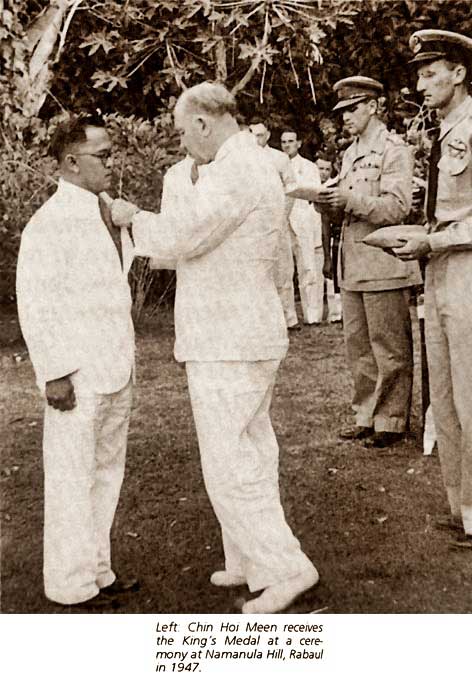
By pure good fortune through, they were able to confirm the soldier’s identity and spared him. Not long afterwards, another soldier visited a different Chinese man in another plantation. This man, with two of his brothers and their wives and children, were massacred after the local villagers reported their meeting with an Allied soldier to the Japanese.
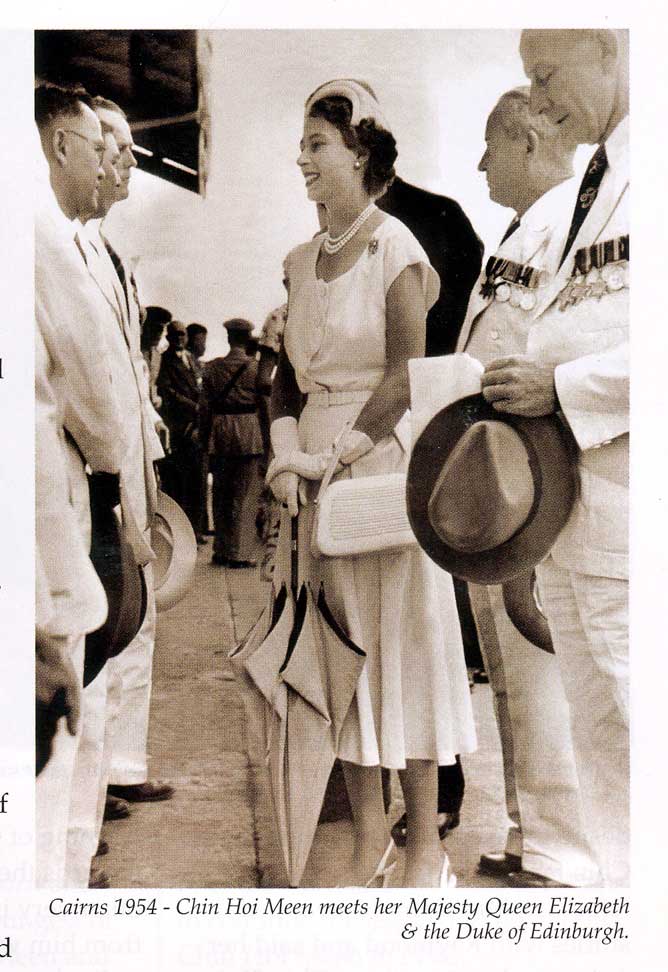
By 1944, the Japanese were clearly losing the war. Chin Hoi Meen and his family were moved to a prison camp with other Chinese at Bitapaka, not far from current-day Kokopo.
They were held there until the Japanese surrendered in August 1945. The hotelier’s son was given official recognition for his wartime bravery in 1949 when he was awarded the King’s Medal for courage and service in the cause of freedom. This medal is intended to acknowledge those who perform “acts of courage entailing risk of life or for service entailing dangerous work in hazardous circumstances in furtherance of the Allied cause during the war.”
In 1954, Chin Hoi Meen was presented to the Queen as a war hero in Australia for his services to the Allied Forces and for risking his life to rescue two American pilots who were shot down.
Half a century later, Mrs. Ann Gilmore, one of the daughters of John Gilmore (DCM), visited Chin Hoi Meen’s youngest son, Raymond, in Port Moresby because it was her desire to meet someone from the Chin family before she retired and left PNG. Mrs. Gilmore swapped stories with Raymond and said her father spoke often about Chin Hoi Meen with admiration.
Her father was with the M special unit as an Australian Coastwatcher. He was able to avoid capture by the Japanese because Chin Hoi Meen was able to pass him information, warning of the Japanese heading towards them. They also received other very important information from him which they were able to radio through to Australia. John Gilmore said he was impressed and honoured to be his friend.
“It took a special man, who was abandoned by the government and the powers that be to risk his and his family’s lives by helping Australians fight the Japanese,” he said. Both men were decorated with their medals on the same day. After the war, Chin Hoi Meen continued to pursue higher education through correspondence and became a high achiever as an interpreter for the Chinese community and helped re-organise and rebuild the war-torn town in Rabaul.
He was a leader for the Chinese community and a councillor for the Rabaul Methodist Church. He was also a keen sportsman and set up one of the most successful weightlifting clubs in Rabaul at the back of his home for the youth of Rabaul. Men who trained there went on to win many gold medals in the South Pacific Games.
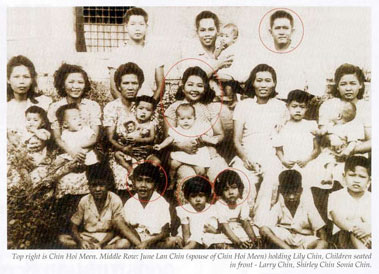


He also took an interest in professional baseball and encouraged young people to play the sport. He was also a regular correspondent before and after the war.
He traveled the world and touched many people’s lives. He started his own business as a general merchant in Rabaul and expanded into professional photography business.
His reputation as a professional photographer in Rabaul soared and he was always chosen as the sole photographer for almost every event in the bustling town.
His photography won him many awards overseas and he worked closely with the government and police. Many of his photos were used and acknowledged by the publishers of the South Pacific Post and its successor, the Post Courier.
He moved to Port Moresby in 1966 and expanded his business with both sons, Larry and Raymond.
The companies that he established, Oceania (PNG) Limited and Chin Hoi Meen, are still operating and are major players in the consumer goods industry. Chin Hoi Meen in now known as CHM and Sons Ltd.
Today, both companies are agents for some of the biggest brand names in consumer electronics and they continue Chin Hoi Meen’s passion for photography. These two companies provide the country with the best and biggest photo processing service chain, as well as professional photography equipment to other companies.
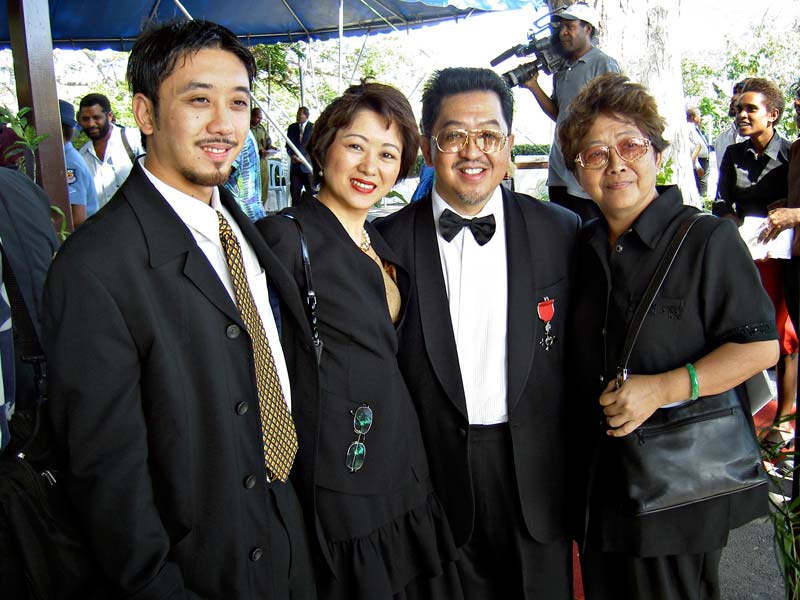
CHM and Sons Ltd today employs more than 250 Papua New Guineans and is a successful enterprise. Managing Director Raymond Chin, a third generation Chin, born and raised in PNG, and the youngest of the children of Chin Hoi Meen and June Wan, which included Larry, Sonia, Shirley and Lily, together with his wife Grace, has expanded and diversified the business.
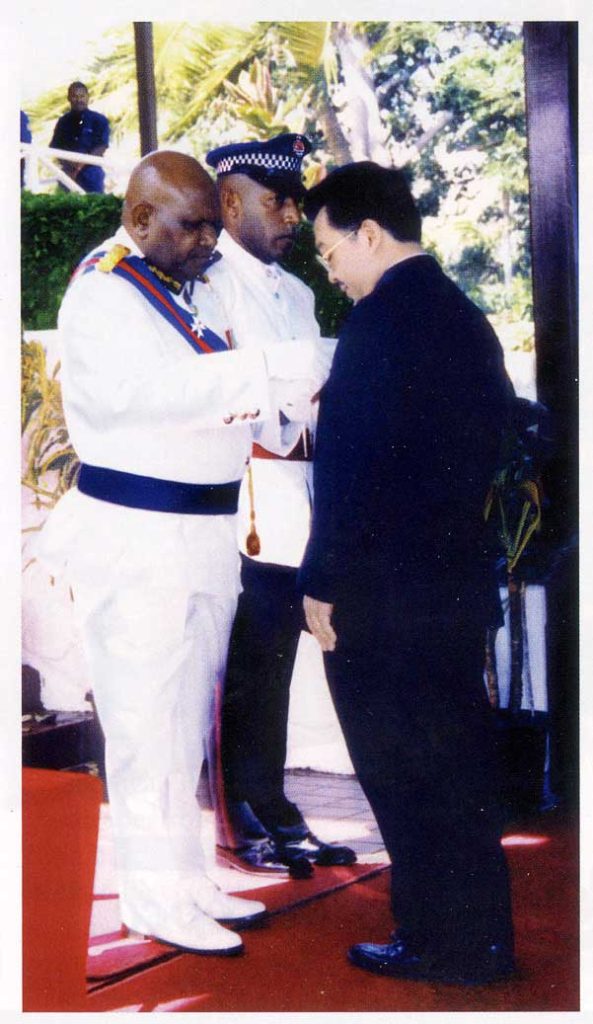
He also took an interest in professional baseball and encouraged young people to play the sport. He was also a regular correspondent before and after the war.
He traveled the world and touched many people’s lives. He started his own business as a general merchant in Rabaul and expanded into professional photography business.
His reputation as a professional photographer in Rabaul soared and he was always chosen as the sole photographer for almost every event in the bustling town.
His photography won him many awards overseas and he worked closely with the government and police. Many of his photos were used and acknowledged by the publishers of the South Pacific Post and its successor, the Post Courier.
The business includes the country’s pioneer music recording label, CHM Supersound Studios, which was established during the late 1970s. It is now the biggest record label in PNG and the South Pacific.
Raymond was awarded an MBE (Member of the British Empire) on May 8 2003, by the Queen for his contribution to the development of PNGs music industry for more than 25 years, making him the third generation to win high honours.
aymond and his family are now the third and fourth generations to continue the legacy left behind by Chin Hoi Meen in PNG.
They continue to expand the business which began in 1949. It traces back 94 years to his grandfather’s generation from 1912.
Chin Hoi Meen passed away on March 31, 1982, at the age of 65, at the Holy Spirit Hospital in Brisbane, Australia. He was a “people person” who loved PNG and its people and touched people’s lives everywhere he went with his camera and his love for photography.
Sources for the details in the Chin Hoi Meen life story: The New Guniea Volunteer Rifles NGVR 1939-43, a history written by Ian Downs; Hostages to Freedom, The Fall of Rabaul 1941-45 written by Peter Stores; Papua New Guinea History through stories, written by Eric Johns.
Be a part of the CHM Future
Join our team and grow with us. Please send us a cover letter and a comprehensive CV. We will evaluate your application and contact you as opportunities within the CHM Group become available.
